Explore key reasons why smaller towns offer appealing alternatives to crowded metro areas for relocation.

More people are choosing smaller towns over big cities for their next move, drawn by factors like better quality of life and affordable housing. These towns often combine the comfort of local amenities with shorter commutes, less congestion, and opportunities for remote work, making them attractive living options.
Understanding what makes smaller towns desirable helps potential movers weigh benefits and challenges effectively. Evaluating employment, community engagement, and access to healthcare ensures a well-rounded decision that fits personal and professional needs.
1. Burlington Vermont offers charming streets with a vibrant local community.
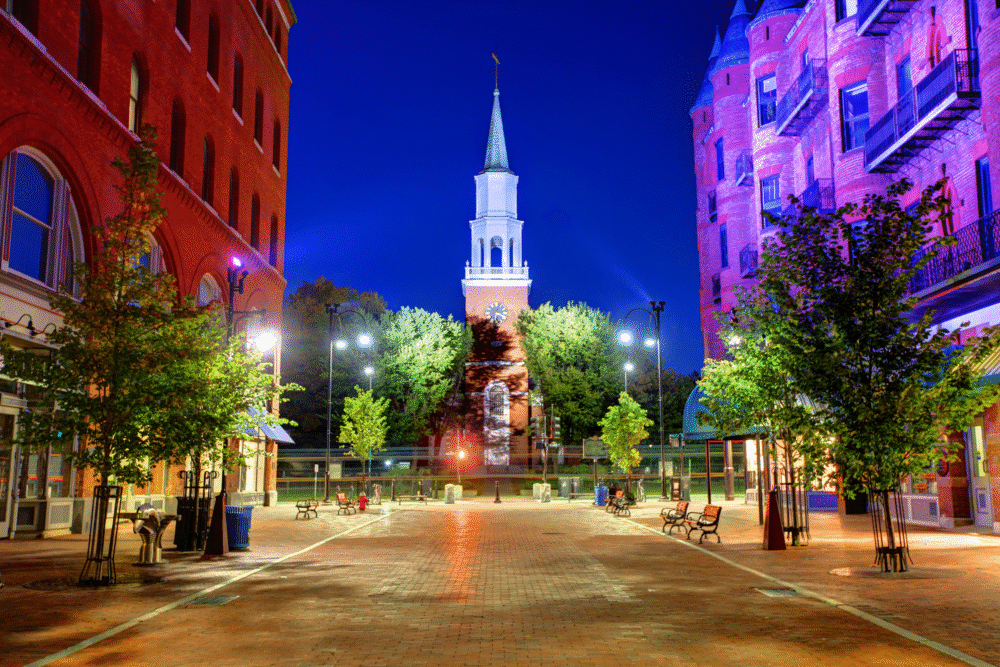
Burlington Vermont is a small city known for tree lined streets, independent shops, and a strong sense of local community. It blends compact urban amenities with easy access to outdoor activities, and many residents work remotely or commute short distances. Local farmers markets, cultural events, and walkable neighborhoods shape daily life and support community engagement while housing tends to be more affordable than in large metros, though demand can vary by neighborhood.
For someone weighing a move Burlington often reduces commute time and supports a balanced quality of life. A useful rule of thumb is to spend a weekend living like a local and check weekday services such as grocery and transit access. Consider job options in advance and research healthcare providers and school choices, and consult a qualified professional for personal advice if you have specialized needs.
2. Asheville North Carolina combines natural beauty with a lively arts scene.
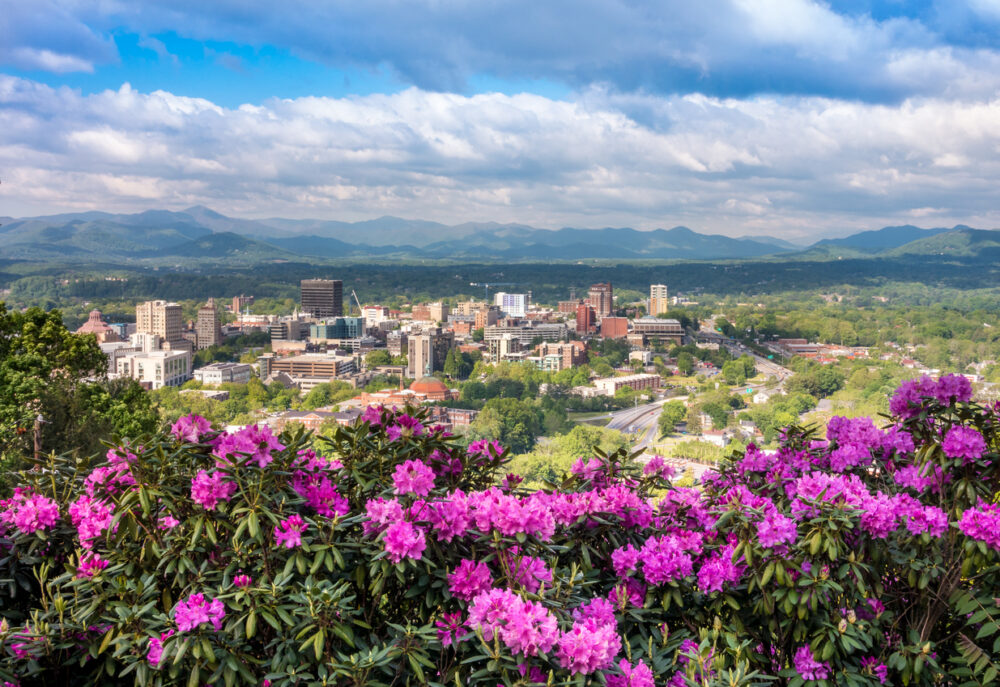
Asheville North Carolina is a mountain town that combines scenic landscapes with a lively arts and food scene. Its galleries, music venues, and craft breweries attract creative professionals and visitors alike while nearby trails and parks invite frequent outdoor recreation. The town supports a mix of remote work and local jobs, and the cultural vibrancy often compensates for smaller scale municipal services compared with big cities.
For potential movers Asheville offers cultural stimulation alongside natural beauty which can boost everyday wellbeing. A practical checklist step is to map cultural venues and weekday traffic patterns to see if the vibe fits your routine. Think about seasonal visitor flux and local healthcare availability before deciding.
3. Bend Oregon provides outdoor adventures and a friendly small-town vibe.
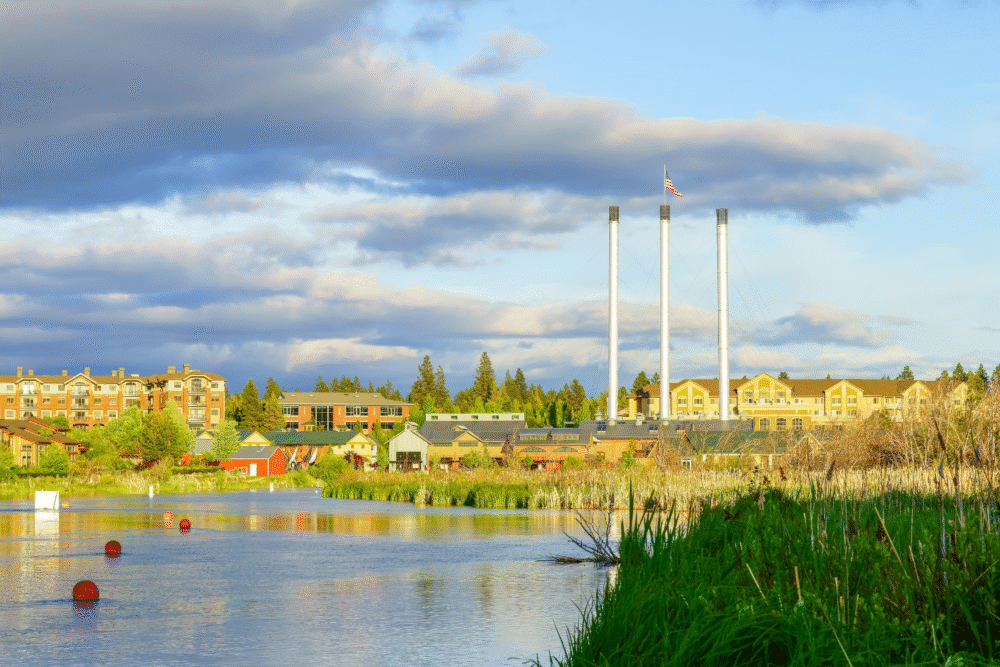
Bend Oregon is an outdoor oriented town popular with people who value active lifestyles and a relaxed pace. It provides easy access to skiing, hiking, river activities, and trail networks while maintaining a compact downtown with restaurants and shops. The local economy mixes tourism, small businesses, and remote workers, creating a friendly small town vibe with varied employment possibilities and some upward pressure on housing prices.
Choosing Bend can mean more time outdoors and shorter commutes for many. One concrete tip is to identify housing within your preferred distance of trails or downtown and compare commute times to likely employers. When planning a move factor in seasonal tourism and service availability to avoid surprises.
4. Traverse City Michigan delights with its lakeside location and cultural events.
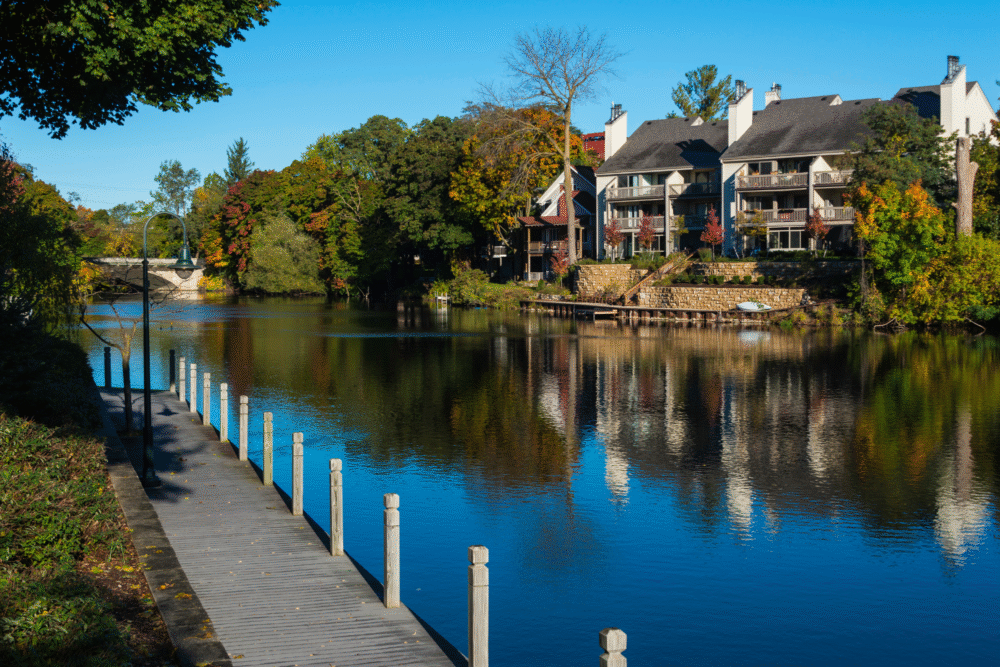
Traverse City Michigan sits on a lakeside peninsula known for waterfront recreation and a calendar of cultural events. It pairs scenic views with festivals, local food scenes, and small museums that create year round community engagement. The town supports a mix of hospitality jobs, creative roles, and telecommuters, and residents often cite a slower pace and stronger neighborhood ties than in metros.
Moving to Traverse City can improve access to outdoor leisure and community gatherings while altering daily rhythms. A practical suggestion is to list the amenities you use weekly and confirm their proximity before committing. Remember to evaluate educational and medical services as part of your research, and consult a qualified professional for personalized guidance if needed.
5. Hood River Oregon is perfect for water sports and scenic mountain views.

Hood River Oregon is tucked between river and mountain landscapes and is renowned for wind and water sports along with scenic views. Its small commercial core offers cafes, equipment shops, and community events that support an outdoors oriented lifestyle. The town attracts athletes, outdoor industry professionals, and remote workers who value easy access to nature and a tight knit civic culture.
Living in Hood River typically shortens travel to recreation and fosters an active community life. A helpful checklist step is to verify seasonal wind patterns and how they affect traffic and tourism. Consider trade offs in job variety and healthcare options while planning your move.
6. Cape May New Jersey entices with historic architecture and peaceful beaches.
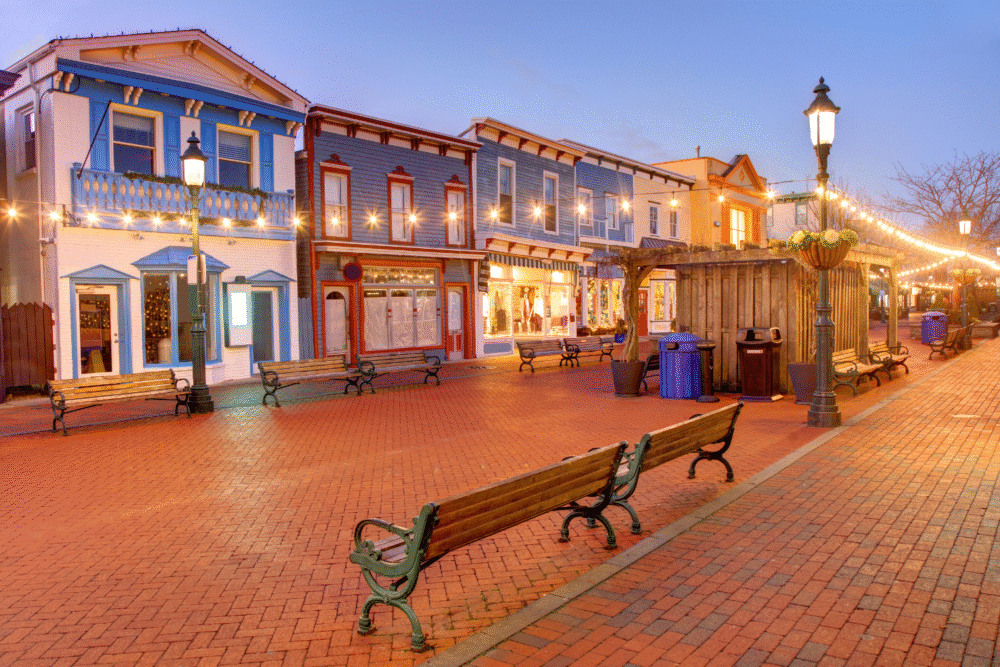
Cape May New Jersey is a coastal town known for its historic architecture, quiet beaches, and a leisurely pace. Victorian homes, bed and breakfasts, and a structured downtown create a sense of preserved character, while local shops and seasonal attractions support small business economies. The town offers quieter living with beachside amenities but can have limited year round employment in some sectors.
For those seeking calmer coastal living Cape May can reduce noise and urban congestion in day to day life. A practical tip is to confirm year round services such as supermarkets and healthcare providers before relocating. A rule of thumb is to budget for occasional travel to larger centers for specialized services.
7. Galena Illinois stands out for its preserved 19th-century buildings and cozy atmosphere.

Galena Illinois is recognized for its well preserved 19th century buildings and an intimate downtown atmosphere. The streetscape and historic homes support tourism, boutique shops, and a cozy community where many residents participate in civic events. Its economy blends small business activity with hospitality and some remote work, offering a strong sense of place for people who prefer architectural character and neighborhood familiarity.
Moving to Galena usually means a distinct sense of history and a slower pace that many find appealing. A concrete step is to visit during a typical week to assess grocery, transit, and bank access. Keep in mind career options may be narrower than in metros and plan supplemental remote work or commuting strategies.
8. Lebanon New Hampshire offers a quiet lifestyle surrounded by nature trails.
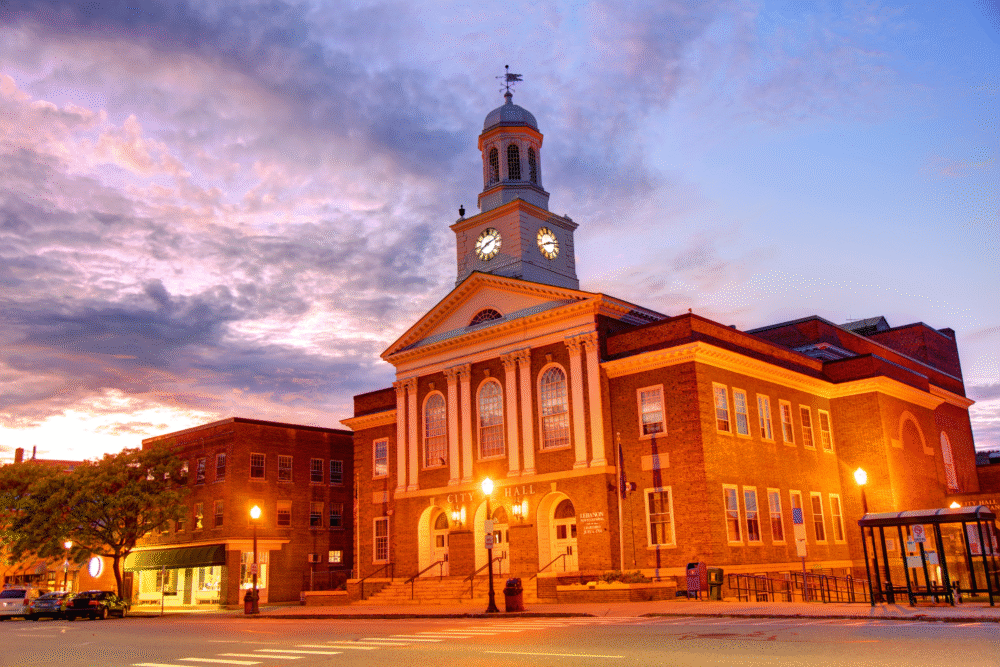
Lebanon New Hampshire is a quiet town surrounded by forested trails and open spaces that attract residents who prioritize tranquility and nature access. It provides basic downtown services, community groups, and local events while offering straightforward commuting routes to nearby regional centers. The town appeals to those who want easy trail access, lower noise levels, and a close knit community atmosphere.
Choosing Lebanon can increase opportunities for outdoor recreation and predictable daily routines. A helpful checklist item is to inventory nearby trails and service providers you need weekly, then test commute times during peak hours. Consider healthcare and education availability when assessing fit, and consult a qualified professional for personal decisions.
9. Eureka California features charming Victorian homes and access to redwood forests.

Eureka California features Victorian era homes, a compact downtown, and proximity to redwood forests that draw lovers of architecture and nature. Its cultural offerings include small museums and community festivals while the surrounding landscape supports hiking and conservation activities. The town can offer a strong local identity and outdoor access, though local economies may lean on tourism and regional employment patterns.
Relocating to Eureka tends to increase exposure to natural beauty and a strong sense of local heritage. A practical tip is to evaluate internet connectivity and year round service availability if remote work is part of your plan. When weighing options include transportation links and the availability of specialized medical services.
10. Frederick Maryland blends rich history with thriving local businesses and festivals.
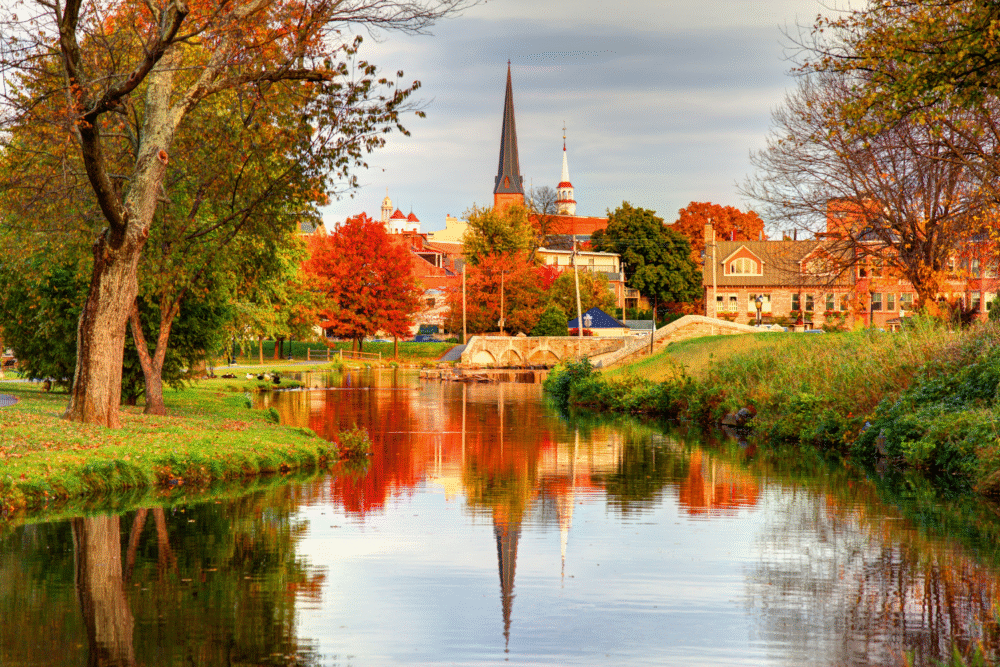
Frederick Maryland blends historic districts with a lively local business community and recurring festivals that engage residents throughout the year. Its mix of restaurants, shops, and cultural venues sits alongside parks and riverfront trails, creating an appealing middle ground between small town charm and urban conveniences. Employment options include local firms, regional employers, and a growing number of telecommuters who appreciate the short commute times.
Moving to Frederick often gives access to both community events and practical amenities without the congestion of larger cities. A useful checklist step is to map commute times to potential jobs and confirm weekly access to services like grocery stores and childcare. Factor in school options and healthcare as part of your evaluation.
11. Decorah Iowa invites those seeking community spirit amid rolling hills.

Decorah Iowa is a rolling hills town with a reputation for strong community spirit, local festivals, and outdoor recreation opportunities. Its small downtown supports independent businesses, community organizations, and cultural programming while the surrounding agricultural landscape provides scenic open space. The social fabric tends to be tight, with frequent volunteer and neighborhood activities that promote civic connection and a slower pace of life.
Settling in Decorah can enhance social ties and reduce daily stress from long commutes. A practical tip is to attend community meetings or events before moving to assess social fit and volunteer opportunities. Check employment prospects and access to specialized services so expectations align with local realities.
